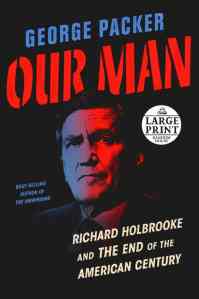The election of Donald Trump has inspired a small library of books, many of them written in a state of anger.
Adam Gopnik’s A Thousand Small Sanities: The Moral Adventure of Liberalism is written in the form of a letter to the author’s teenage daughter, as both parent and child were bewildered by the 2016 election. This book is mostly a pep talk to liberals, reminding them of their many victories and the moral rightness of their cause. Since liberalism, in the post-1945 world, has swept the boards (civil rights, women’s rights, gay rights), the reader, at times, begins to wonder the purpose of the book.
The author has his contradictions. He notes that liberalism is “planetary” with the breed always feeling at home in the world. Then he admonishes liberals to know the importance of place to potential voters. He also claims that a liberalism that “doesn’t offer hope to Ecuadorian peasants and Haitian sweatshop workers and Congolese children caught in cobalt mines as much as it does Manhattan progressive families is hardly worth defending.”
So what course should liberals take? An emphasis on a particular people living in a particular place, or the universal rights of man? Gopnik is not a native New Yorker, but he is so inspired by our beloved city’s success as a multicultural, multi-religious metropolis with a low crime rate that he sees it as a model for the world, while at the same time maintaining that the organic communities portrayed in J.D. Vance’s Hillbilly Elegy aren’t as quaint as they are cracked up to be. Further, he maintains that while folks in Akron, OH, have legitimate economic concerns, “the proximate cause of Trumpism is not economic anxiety in Akron. It’s rooted in…racial resentments and in attitudes you can trace right back…to the aftermath of the Civil War.”
How that lecturing can rally people in Akron to the cause remains unclear. Gopnik celebrates the triumph of liberalism in Western Europe, North America and Australia. The nations on those continents, however, comprise only a sliver of the world’s population. The author seeks the universal triumph of liberalism and we’re afraid he’s going to be disappointed. A Thousand Small Sanities was written in a rush. It is introspective on the failings of liberal democracy, but not as much as it needs to be.
Is Richard Holbrooke, the longtime American diplomat, worth a thick biography? A 1995 peace accord ending a civil war in Bosnia, a long-forgotten country in the Balkans, remains his signal achievement. A native of Westchester County, Holbrooke was inspired for a career in foreign service by Dean Rusk, John F. Kennedy’s future Secretary of State, whose son was a friend of the Scarsdale teenager.
The young Holbrooke slowly came to oppose the Vietnam War. By the 1970s, he was impressed with Henry Kissinger’s stardom: The diplomat as a celebrity. Holbrooke cultivated friendships in Democratic Party circles. A hawk and an internationalist, Holbrooke could have easily served in various Republican Party administrations, but Secretary of State in a Democratic one was his career goal. Alas, his overbearing style made that impossible. Barack Obama, for instance, wanted nothing to do with Holbrooke, then in the employ of Hillary Clinton’s State Department. In Our Man: Richard Holbrooke And The End of the American Century, George Packer hails Holbrooke as “representing what was the best about us:” an action figure who believed that America could extend a benevolent hegemony over a fallen world.
Packer has great admiration for the man, even while acknowledging his subject’s failed marriages and dubious attempts as a ladies’ man. A problem with the book is the subtitle. The demise of American hegemony can hardly be pinned on Holbrooke, a bureaucrat with a talent for publicity. A detailed history of the Iraq War and the administration of George W. Bush would be closer to the mark. Outside of the Balkan civil wars, Holbrooke never had much influence over American foreign policy.






























